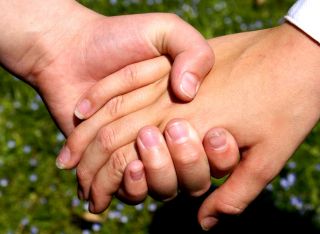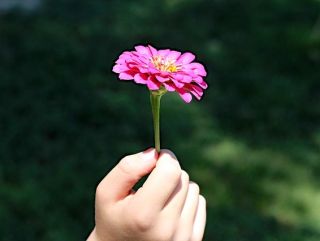Religion
All About Kindness: Quotations, Reflections, and Photos
“We are made kind by being kind,” and other quotes and reflections on kindness.
Posted December 17, 2013

“Kindness is a language which the deaf can hear and the blind can see.” —Anonymous (often attributed to Mark Twain)
In other words, kindness is a universal form of communication. I hope this piece makes it come alive for you.
“My religion is very simple. My religion is kindness.” —The 14th Dalai Lama
There’s a difference between kindness and compassion. Compassion arises when we reach out to help a person who is suffering and unhappy. By contrast, kindness is the simple act of being friendly to everyone we meet, whether they’re suffering or not. In my book, How to Wake Up, I describe a kindness practice that I call friendliness practice:
As I turn the front doorknob to leave my house, I consciously resolve to maintain an attitude of friendliness toward all the strangers I see…If I’m waiting in line, I look at each person around me (unobtrusively, of course) and silently say to each one: “May you enjoy this day”; or “I hope you have fun today.” I say whatever feels natural to me at the moment. Sometimes a negative judgment starts to arise when I first look at someone (isn’t it amazing how easily we can judge people we don’t even know?). When this happens, I silently say something friendly to that person anyway, and the judgment usually vanishes.
I devised this practice so that I could turn being kind into a habit—as the Dalai Lama put it…into my religion.

“Kindness is within our power even when fondness is not.” —Samuel Johnson
There's a quotation that's attributed to the Buddha that is often misstated this way: “Hatred does not cease by hatred, but only by love.” The written record of his teaching, however, indicates that he put it this way: “Hatred does not cease by hatred, but only by non-hatred.” To me, this second version is more realistic. There are some people in the world that I find it hard to love. But I’ve come to realize that when I direct hatred at them, I’m the one who suffers. So I cultivate non-hatred for them. In other words, I cultivate kindness.
“I’ve always depended on the kindness of strangers.” —Blanche in Tennessee Williams’ A Streetcar Named Desire
I’ve read this play several times and, in the context of the play, this is a tragic statement. But when I suddenly found myself surrounded by strangers during the traumatic years when I was seeking a diagnosis for my illness, I came to depend on their kindness to help get me through emotionally—a fellow patient in the waiting room who gave me a friendly smile, a lab technician who cared about my comfort. In turn, their behavior helped teach me to be kind to strangers.
“Kindness can become its own motive. We are made kind by being kind.” —Eric Hoffer
This quotation echoes another of the Buddha’s teachings—that what we do becomes the inclination of our minds. Both the Buddha and Hoffer are saying that whenever we’re kind, we’re strengthening our inclination to be kind again. We’re planting a behavioral seed that can grow into a habit.

“Be kind to people whether they deserve your kindness or not. If your kindness reaches the deserving, good for you; if your kindness reaches the undeserving, take joy in your compassion.” —James Fadiman and Robert Frager, Essential Sufism
As kindness becomes a habit, we no longer need to figure out whether someone deserves our kindness before we offer it to them. Wouldn’t it be wonderfully freeing if kindness and friendliness became our natural response to others as we make our way in the world?
“No act of kindness, no matter how small, is ever wasted.” –Aesop
Another saying attributed to the Buddha expresses a similar theme: “Drop by drop is the water pot filled. Likewise, the wise man, gathering it little by little, fills himself with good.” In other words, every drop counts.
Here’s another quotation that sounds this same theme:
“There is no small act of kindness. Every compassionate act makes large the world.” —Mary Anne Radmacher, American writer and artist
Finally, I’ll leave it to Henry James to sum up this piece:
“Three things in human life are important: the first is to be kind; the second is to be kind; and the third is to be kind.”
© 2013 Toni Bernhard. Thank you for reading my work. I'm the author of four books:
How to Be Sick: Your Pocket Companion (for those who've read How to Be Sick and for those who haven't). May 2020
How to Live Well with Chronic Pain and Illness: A Mindful Guide (2015)
How to Wake Up: A Buddhist-Inspired Guide to Navigating Joy and Sorrow (2013)
All of my books are available in audio format from Amazon, audible.com, and iTunes.
Visit www.tonibernhard.com for more information and buying options.
Using the envelope icon, you can email this piece to others. I'm active on Facebook, Pinterest, and Twitter.
You might also like "Surprisingly Modern Wisdom from Ancient Greeks and Romans."




